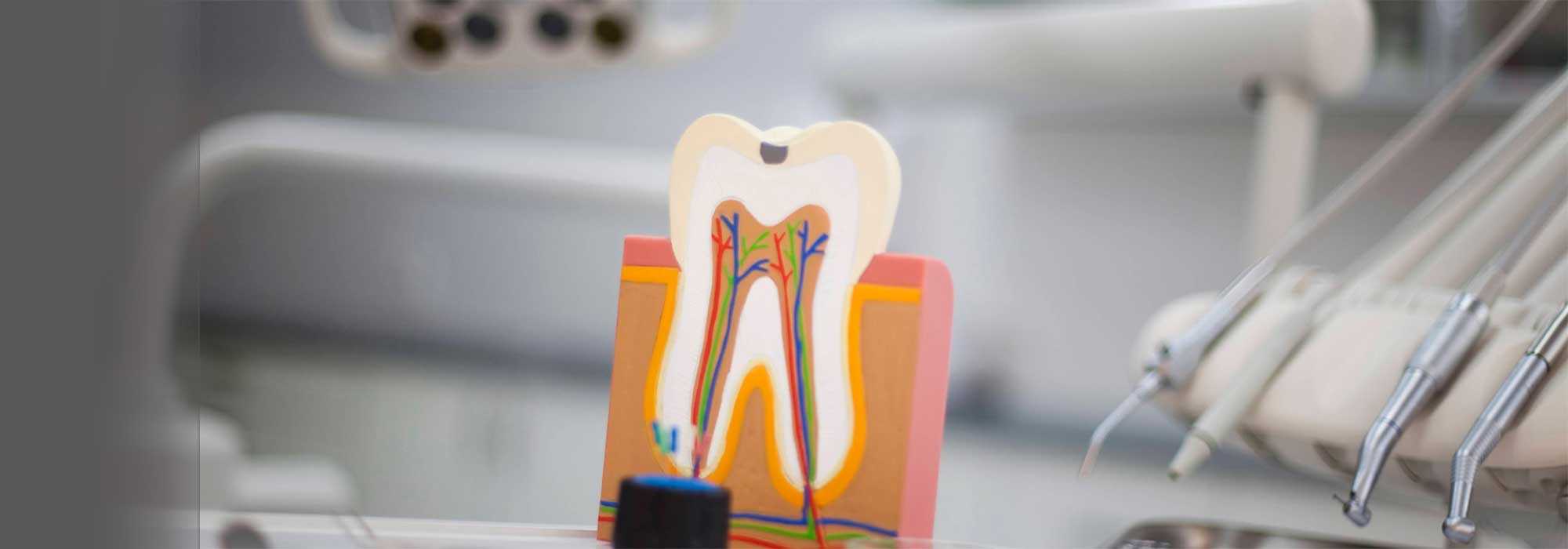CRACKED TEETH
Nowadays, our teeth are doing more work than ever. We live longer, and life is more stressful now than ever. This means that we are using our teeth for more years than before, and we are exposing our teeth to damaging habits such as clenching, grinding, nail-biting, and chewing hard items like ice or hard candies.
Anytime you put your teeth under more strain, it increases their susceptibility to cracks. If you have a cracked tooth, it is important to have your Endodontist assess it and treat is as early as possible in order to prevent further damage to the tooth and surrounding tissues.
Cracked teeth can be tricky, because they do not always show a visible fracture line. Cracked teeth have a wide variety of symptoms. Some symptoms you may experience include: erratic and intermittent pain when you chew with them, pain to hot and cold, or intense pain when chewing harder objects like granola or nuts. Sometimes the pain comes and goes, or only hurts when you hit the tooth a specific way. Sometimes it can be difficult for your general dentist to locate the source without high magnification.
Why Cracked Teeth Hurt
When a crack develops in the enamel and dentin (the outer hard surfaces of your tooth,) chewing put pressure on the two slightly separate pieces. Enough pressure can cause movement of the pieces, allowing the nerve on the internal component of the tooth to be exposed in a way it shouldn’t be. When the biting pressure is released, the crack closes, which cause a sharp, momentary, stabbing pain. Over time, this continuous movement and exposure causes the pulp to become inflamed and die.
Eventually, the nerve will become so damaged that it can no longer recover. Now, the tooth will hurt to chewing and it will also become extremely sensitive to hot and cold temperatures. Eventually, the tooth will begin to hurt spontaneously without any stimulus. If left undertreated, the tooth may crack further, or the nerve may die completely and become necrotic. This causes infection of the tooth and the surrounding bone and gum tissue.
Types of Cracked Teeth
There are many different types of cracked teeth. The treatment for your tooth will depend greatly on the type of crack, the location of the crack, and the extent of the crack. Every tooth is different, so Dr. Newman will assess your tooth and come up with a plan. Treatment ranges. Some cracks can be repaired with something as minor as a filling, while others require more advanced care in the form of a root canal and crown, and there are even some so severe that they require extraction and replacement.
Preventing Cracked Teeth
It is difficult to entirely prevent cracked teeth, since most clenching and grinding occurs while we are sleeping! There are, however, still some steps you can take in order to protect your teeth as much as possible.
- Try not to chew on hard items, like your fingernails, ice cubes, popcorn kernels, hard candies, or pens. Dr. Newman has had patients crack teeth on frozen vegetables, chicken bones, olive pits, and frozen cookie dough.
- As best you can, try not to clench or grind your teeth. If you catch yourself doing this during the day, try to relax your jaw.
- If you know you are a clencher or grinder, wear a dental mouthguard at night. Your general dentist can help you get a custom-fit mouthguard. Even Dr. Newman wears one!
- If you play sports, wear a mouthguard or protective shield.
With cracks, early diagnosis is critical. Even with high magnification, special imaging, and intense lighting, it can still be difficult to determine the terminal extent of a crack. A cracked tooth that is not treated will only get worse, and it will eventually result in tooth extraction. In order to save these teeth, early diagnosis and treatment is essential.
Request an Appointment
Our team is ready to help you book an appointment. Proper dental care can make the difference in years to come. Our specialists can help you restore your oral health in the long run, as well as relieve pain.


